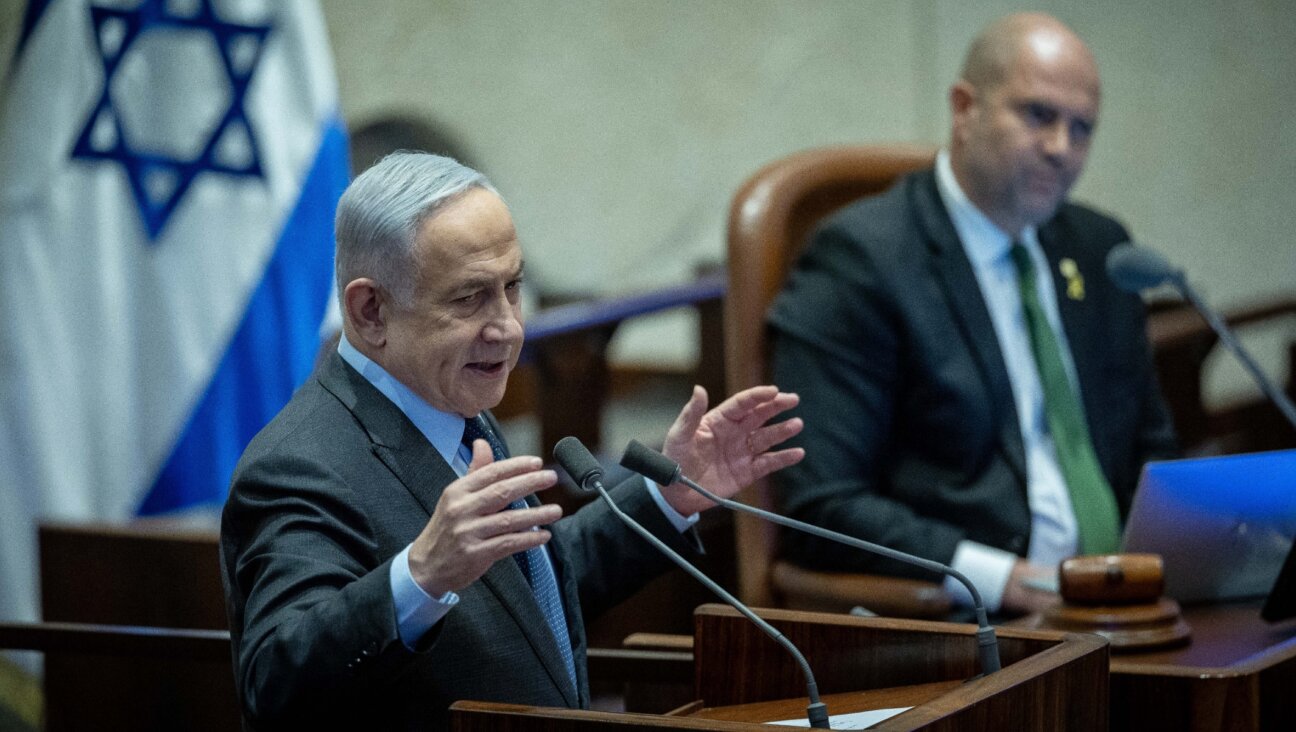Sharon’s Mission
It might be none of our business, technically speaking, how Ariel Sharon chooses to spend what’s left of his political career. He’s shown himself over the years to be a master of his country’s political system; he can probably figure out without our help how to maneuver his way through the unrest in his Likud party and continue steering his country toward stability and security.
Our main concern is that he continue steering in that direction. During the past year he’s carried out one of the most daring steps in recent Middle East history, withdrawing Israeli settlers and troops from Gaza. He has reshuffled the diplomatic map, showing for the first time that Israel is capable of separating itself from Palestinian population centers and leaving its neighbors to live their own lives. But the job is only part-finished. Israel still rules over 2.5 million Palestinians in the West Bank. Until it manages to disengage on its eastern front, creating a border between itself and the main center of Palestinian population, the violence will continue, and with it Israel’s isolation on the world stage.
Sharon’s critics have long argued that his Gaza withdrawal was intended merely to buy him time to dig in on the West Bank. His own aides have given mixed signals. This week one of his closest advisers, Eyal Arad, sent what seemed like a clear message. In a speech in Herzliya, Arad said Sharon was considering further disengagement as a “strategic option.” If the diplomatic deadlock continues, he said, Israel might dismantle some West Bank settlements and pull back to a defensible border — to be renegotiated when genuine peace talks seem realistic.
The Gaza disengagement was traumatic for Israel’s body politic. Many Jews saw it as an attack on Israel’s divine mission. For the sake of Jewish unity in Israel and worldwide, it’s important that those wounds be healed through understanding and love. But for the sake of Jewish lives, Sharon must continue the urgent mission of securing Israel’s borders.
A message from our Publisher & CEO Rachel Fishman Feddersen

I hope you appreciated this article. Before you go, I’d like to ask you to please support the Forward’s award-winning, nonprofit journalism so that we can be prepared for whatever news 2025 brings.
At a time when other newsrooms are closing or cutting back, the Forward has removed its paywall and invested additional resources to report on the ground from Israel and around the U.S. on the impact of the war, rising antisemitism and polarized discourse.
Readers like you make it all possible. Support our work by becoming a Forward Member and connect with our journalism and your community.
— Rachel Fishman Feddersen, Publisher and CEO






















